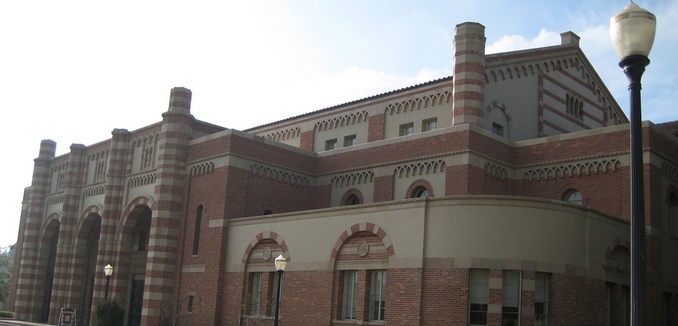A group of scholars and academics signed a letter urging the University of California system to adopt the State Department’s definition of anti-semitism, The Algemeiner reported Monday.
Some 34 academic specialists in antisemitism signed a letter calling on University of California President Janet Napolitano and UC regents to adopt the State Department definition of antisemitism and use it on campuses to identify antisemitic behavior and educate about discrimination against Jews.
The academics, which included professors from schools across the U.S., but also Europe, as well as Jewish organizations like the Simon Wiesenthal Center, “Urged UC to include in its ‘Statement of Principles’ a reference to the full U.S. State Department definition, which recognizes that contemporary antisemitism has assumed various disguised forms and, as the U.S. Commission on Civil Rights found, is often ‘camouflaged as anti-Israelism or anti-Zionism.’”
The UC Board of Regents is scheduled to address anti-semitism, along with other forms of intolerance, at a meeting later this month.
The letter, partially included below, was circulated by the Amcha Initiative, a group dedicated to fighting anti-semitism on campus. It stressed the importance of endorsing the definition as a first step towards confronting anti-Jewish hostility within the UC system.
We write you as scholars of contemporary antisemitism who are deeply concerned about the alarming rise of anti-Jewish hostility throughout the world, including on college and university campuses. We are aware that in the wake of a dramatic increase in antisemitic incidents at the University of California, you are considering the adoption of the U.S. State Department definition of antisemitism. We fully endorse the State Department definition and believe that its adoption at the University of California would be an important first step in properly identifying and educating about antisemitism on UC campuses.
Professor Robert Wistrich, the world’s foremost scholar of antisemitism until his recent passing, has said that anti-Zionism has become “the most dangerous and effective form of antisemitism in our time.” We wholeheartedly concur with Professor Wistrich’s assessment.
Anti-Zionism becomes antisemitism when the rhetorical and physical manifestations of hatred towards Jews as a people are directed towards Israel as the nation-state of the Jewish people. Like classic antisemitism, anti-Zionism uses false and baseless claims and mendacious argumentation to propagate hatred of, and bring harm to, the Jewish state.
Among the signatories were Jeffrey Herf, a professor of history at the University of Maryland, and Ben Cohen, senior editor of The Tower Magazine.
In Why Are Student Leaders and Jewish Bruins Under Attack at UCLA?, which was published in The Tower Magazine in 2014, Tessa Nath described the toxic environment pro-Israel groups on the UCLA campus face.
For myself and other Jewish and pro-Israel students, the atmosphere is poisonous. We feel attacked, ostracized, and threatened. Our identities are being rejected and our right to express our beliefs endangered. Our academic performance is being harmed unjustly; and our supporters are now targets of hate campaigns, baseless accusations, and unfair political and social retaliation. Yet, we cannot give up hope that the situation can be changed, or that it can teach us something important. It can be an isolating experience wading through all of the social and mass media reports about the terrors at UCLA right now. But ultimately, they remind us of the need for competent, strong, and open-minded voices that can temper hate and bring us back to a place of tolerant coexistence.
[Photo: Andy Dietler / Flickr ]




